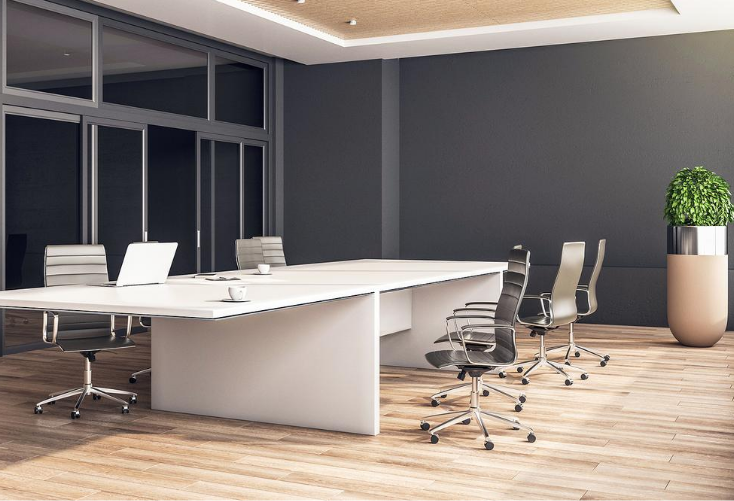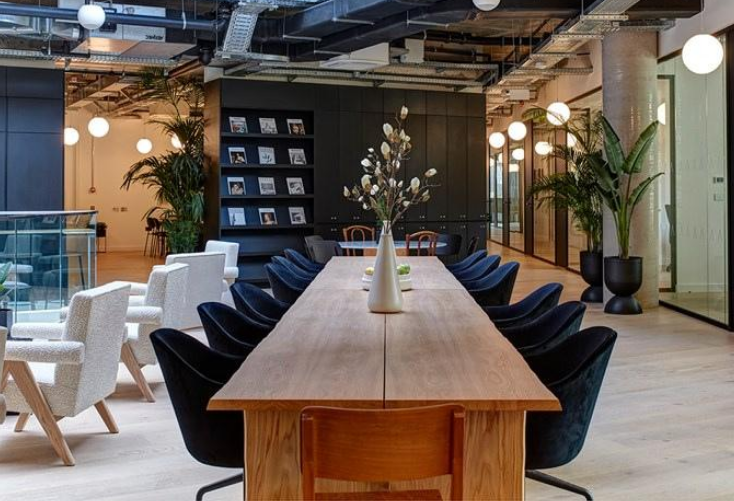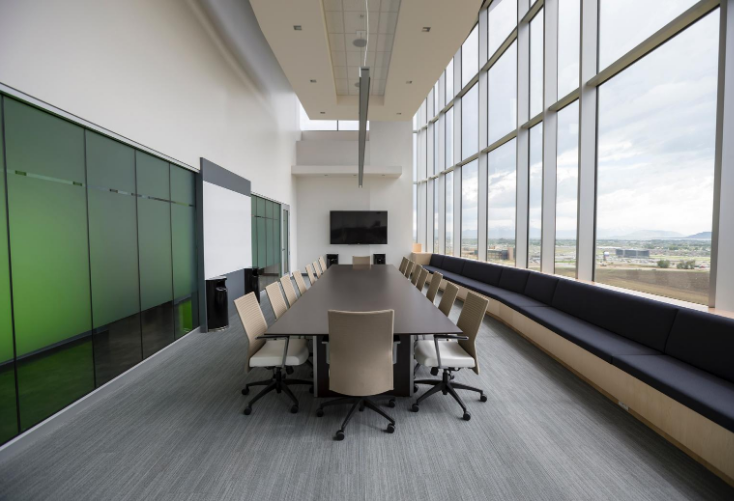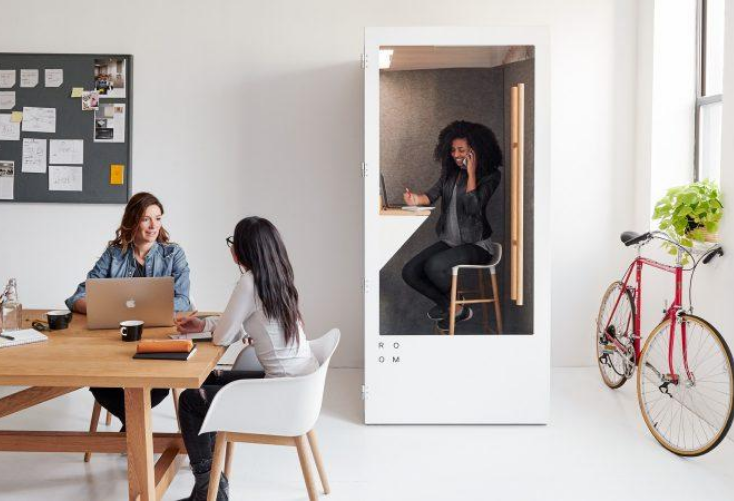Hand selected flexible workspace news from the most reliable sources to keep you ahead of the pack. We find all the latest news, so you don’t have to. Morning and afternoon updates. Stay in the know.
Here’s what you need to know today:
- CBRE Expands Its MetLife Building Location NEW
- What To Expect From The Workplace Of Tomorrow NEW
- Former Leeds Casino To Become Coworking Space NEW
- Optimism In The Short-term Flexible Office Market Wanes
- Flexible Workspaces Are The Real Solution
- Agile Workspaces Are The Ultimate Solution
CBRE Expands Its MetLife Building Location
CBRE has revealed that it will expand its 200 Park Avenue location, bringing its total footprint in the MetLife Building to 215,000 square feet.
According to Matt Van Buren, CBRE’s President of Advisory Services, Northeast Division, the new space will allow the company to consolidate its Advisory Services into one location.
CBRE will now take up space on the 18th, 19th, 20th and 22nd floors, as well as parts of the 27th floor.
The firm also announced it would be leaving its 140 Broadway location and relocating to its coworking brand Hana’s 3 World Trade Center location. Van Buren said that Hana will allow CBRE employees office space to work out of when they are in the area.
Hana is anticipated to operate two full floors at the location, but the amount of space CBRE will be using is still up in the air.

What To Expect From The Workplace Of Tomorrow
The largest work-from-home experiment has provided insight into how remote working and collaboration will shape the future of work.
Although these trends have long been predicted, the pace in which they have become reality was unexpected. Now, organizations have come to realize that employees can work wherever they have access to reliable Wi-Fi and devices.
However, some younger workers have expressed issues with working from home, citing more distractions and lower job satisfaction.
Additionally, despite many employees opting for remote working arrangements, the office will still play a significant role in the company’s operations. Some corporations are looking into decentralizing their offices and adopting flexible offices in the suburbs.
In a post-pandemic workforce, employees will have more opportunities to work closer to their homes and only come into the office when necessary.
This change in workplace operations has also opened the opportunity to become a more project-focused environment. Now, when employees come into the office, it will likely be for hands-on team meetings and project discussions.
“While allowing individuals to choose the place of work, it has become important for people to collaborate with each other,” said Shashi Singh, founder of Agile N2N, an agile consulting company. “Leaders and organizations need to enable the workforce with collaboration tools.”

Former Leeds Casino To Become Coworking Space
London-based company Department Casino will open a new workspace and wellness space at Leeds Dock in spring 2021.
The company is part of Allied London’s All Work & Social brand, which will transform the former Alea Casino into a workspace for those in the technology, media and creative industries.
The 55,000 square foot space will also feature wellness and social spaces, including a clubhouse, rooftop and more amenities in collaboration with local companies. This is the third city in the UK to be part of Department Casino’s portfolio.
“The building is designed to evolve and grow with each business, with provisions ranging from single coworking hot desks available for an afternoon, to meeting rooms and managed office space available for businesses of up to 200 people,” said Anthony Powell, managing director at Department Casino.

Optimism In The Short-term Flexible Office Market Wanes
Workthere from Savills has released their third “Global Flexible Office Sentiment Survey” and revealed that there has been a dip in optimism about the industry in the short-term.
The report surveyed 92 flexible offices across 12 countries including US, Canada, France, Canada, France, Germany and Hong Kong.
The survey, which was conducted in July, found that only 30% of North American flexible office providers were optimistic about the market in the short-term, compared to 59% in May.
The drop in optimism is potentially being driven by more members looking for rent relief, which has grown to 39% compared to May’s 33%, as well as members not renewing contracts.
Pre-pandemic occupancy in North America flexible offices sat at 80%, and is expected to be at a measly 49%.
However, over 60% of providers said they were optimistic about the flexible office sector over the next 12 months, which is likely due to increased inquiries into their spaces from large companies.
Although the near future looks grim for the industry, CBRE occupier research leader Julie Whelan expects that the coworking market will come out stronger than ever as companies seek a workspace with more flexibility.

Flexible Workspaces Are The Real Solution
Discussions about the future of work have revolved around how businesses will configure their workspaces in a post-pandemic world.
According to JLL India, the country is the second largest market in the Asia-Pacific region and prior to pandemic, the market was seeing a 25% to 30% growth. Now, in the wake of ongoing lockdowns, companies must rethink how their workspaces can accommodate physical distancing needs.
For now, several organizations are accomplishing this by keeping their employees in remote working positions to reduce exposure. For instance, Google and Facebook announced it would allow employees to work from home until the end of the year.
While it appears that remote working will be the long-term solution, employees have expressed issues with the lack of infrastructure and tools they have to work from home. This includes slow internet, lack of workplace amenities and more.
Additionally, many remote employees have experienced mental health issues attributed to long periods of isolation and burnout from not knowing when to switch off work mode.
This has led some companies to explore the option of adopting flexible workspaces to provide employees with a physical workspace with the necessary work amenities, while still managing to keep them safe and healthy. Many of these workspaces are reconfiguring their offices to emphasize the importance of distancing and sanitation, while providing the perks of flexible leases and a sense of community that can be difficult to replicate virtually.

Agile Workspaces Are The Ultimate Solution
Businesses all over the world are considering whether they need office space moving forward as millions of employees continue to work from home. While some companies have allowed their workers to work remotely for the foreseeable future, others are extending their remote arrangements until next year and some require a doctor’s note to continue working from home.
However, for most companies, the solution to this obstacle is that sometimes workspaces are necessary. Although remote working has its own benefits, there are some downsides such as isolation and distractions.
“Right now everyone is still trying to figure out what the appropriate density will be for offices and what the right ratio of private space should be,” said Brian Chen, founder of the modular office space manufacturer ROOM. “The problem is that this ratio can change quickly and everyone has a different answer.”
So why would employees want an office space? First, a private space without the distractions of home can help improve productivity. Second, collaborative meetings can also be difficult to conduct over Zoom and meeting in-person could lead to more innovation. Using flexible workspaces meets these requirements easily as they are outfitted, clean and ready-to-go for members to use.
However, committing to a lease even in the short-term can be a risk for companies who are already financially struggling. The solution to this could be to build a purpose-built workspace that is agile and adaptable. For instance, ROOM has created modular workspace solutions that include soundproof privacy booths, meeting rooms and open spaces that can be shipped to the site and assembled.


















